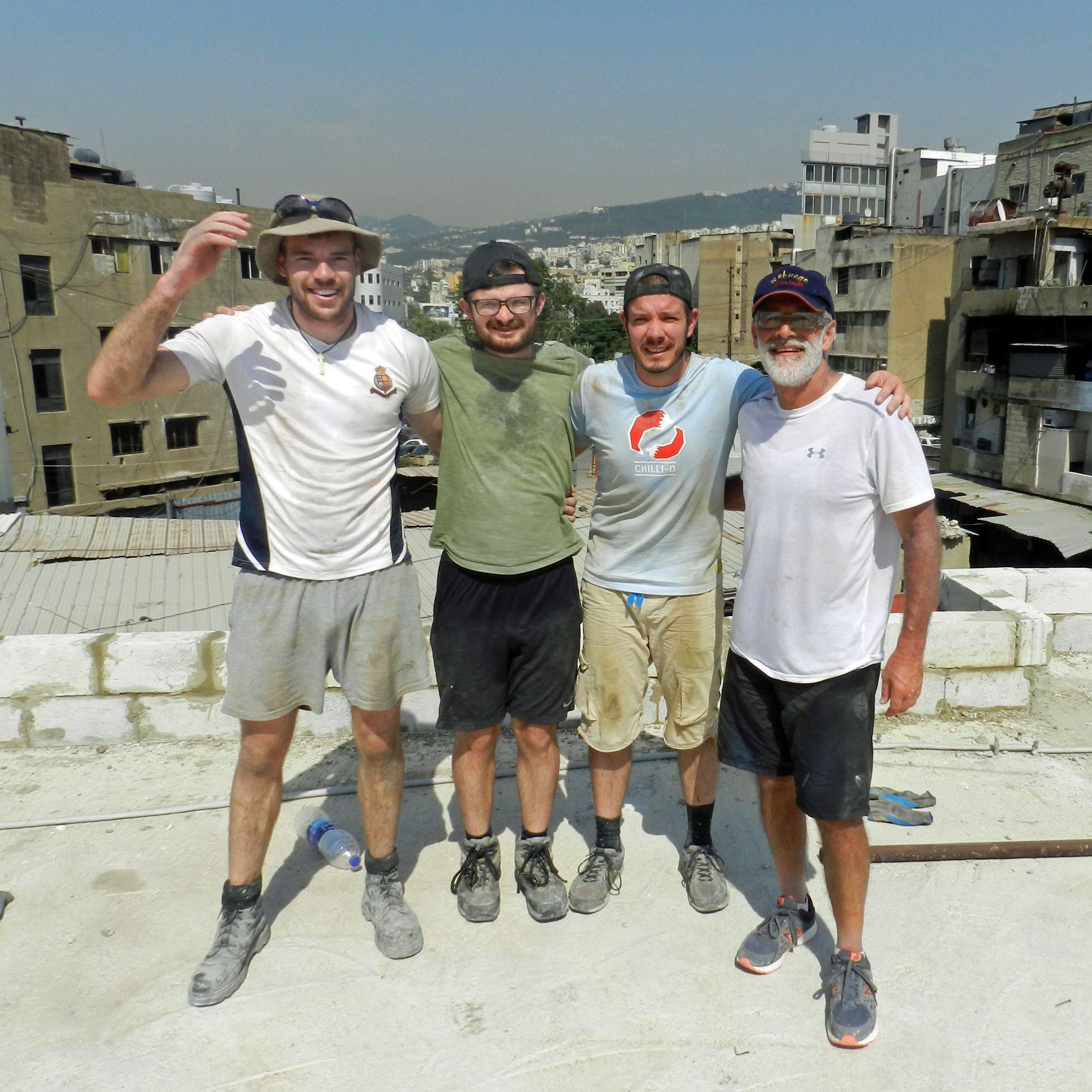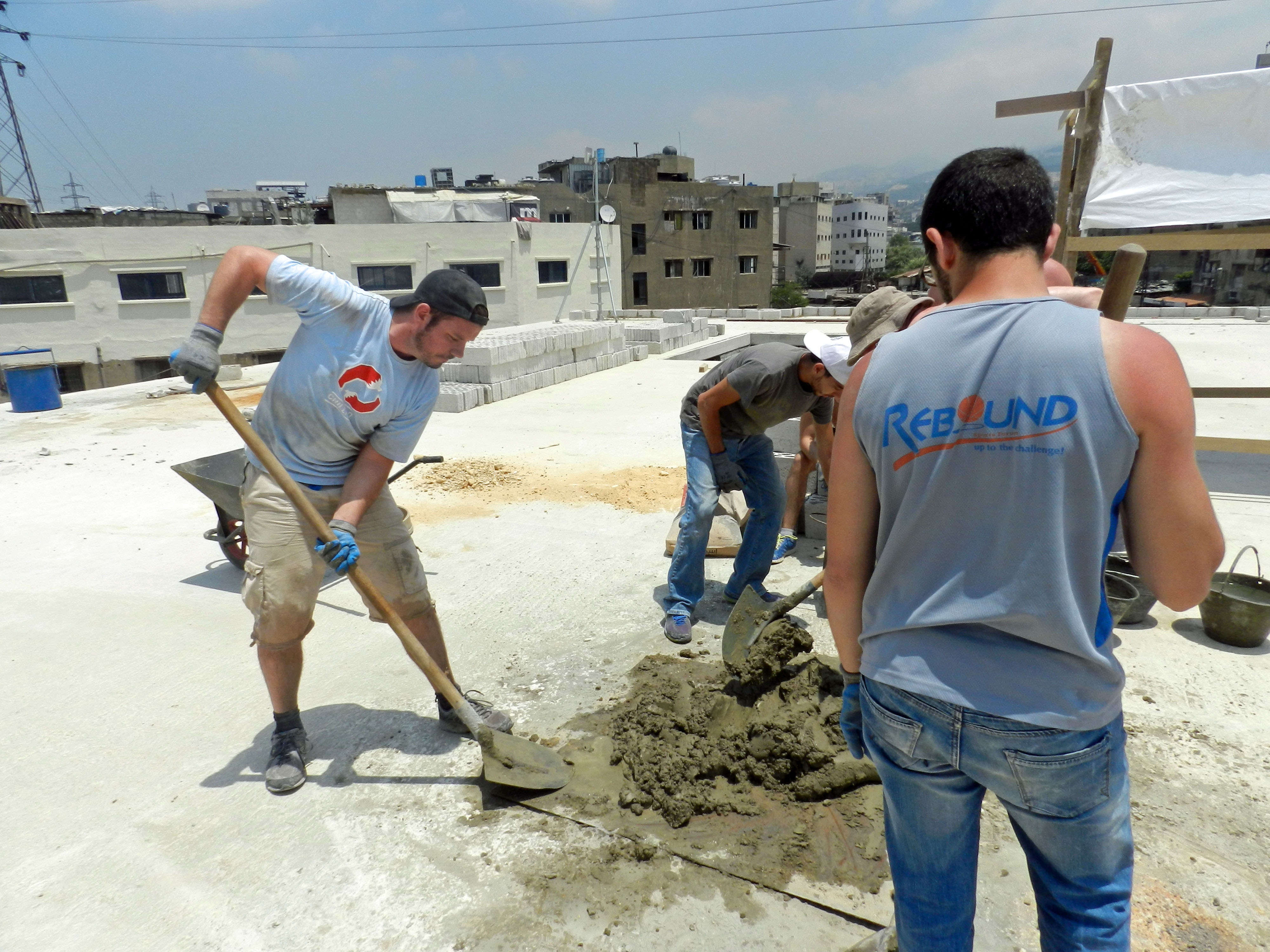
Many of the “Men on Mission” participants on an outing to Tyre.
In July of this year, five brothers from Europe and the USA spent three weeks in Beirut, Lebanon, in order to facilitate an outreach called “Men on Mission.” It was the third time it took place. It is aimed at university-age men, and this year the participants included four men from Belfast and London and about 14 Lebanese. We interviewed Tadhg Lynch, life-long brother based in Belfast, about the time.
Explain a little more: What is “Men on Mission” like?

It is a highly formative environment where, for three weeks, young men set aside pretty much everything else in order to live with other young men in households, to receive a lot of discipleship teaching and to engage in practical service during the day. In that sense it is a cross between a summer household and a mission trip. These young men live in a busy city, have busy lives and are used to pretty much running their own lives. So the choice to fit into a schedule and forego the many other attractive options of what they could do with their summer is a radical step and not one which all of them manage to take successfully.
What roles do the service projects play?
I think they play a crucial role. Most university students don’t spend a lot of time working with their hands, so physical labor can bring you to your limits in somewhat unforeseen ways. At the same time, after three weeks you can point to something tangible you have achieved: a wall has been built, a ditch has been dug—and that is be highly satisfying. Lastly, the participants see us older brothers as we struggle with heat and exhaustion as well, and that also is an important experience.

Peter Eves, Stephen Bick, Tadhg Lynch and Dave Quintana (from left to right)
What was your experience leading this program?
It was interesting serving with seven other Servants of the Word brothers, some of whom were older than me. It is a somewhat new experience to lead when older brothers are present who are possibly more qualified for the job than I. So I have to psyche myself up before the program starts. But when it is actually running, I feel this deep satisfaction of serving alongside my brothers, building the Lord’s kingdom. That gives me great energy, because that is really what drew me to the brothers in the first place. And the comradery we experienced was quite special.
What is the long-term fruit of such a program?
You can of course never fully gauge what impact these weeks have made. But let me point you to one example. One of the men had just graduated from university and needed to find a job. Somebody suggested he first participate in this program and then start job hunting. He did, which was a huge step for him (and probably even more so for his parents who were anxious that he got on with life). He was present at everything and put aside the distraction and anxiety of needing to find employment. Shortly after the end of “Men on Mission”, he found an excellent job. I am not trying to say that there is a direct cause-and-effect relationship here. But I do believe that this brother learned a valuable lesson, that God is never outdone in generosity, a lesson he will never forget, I think.






